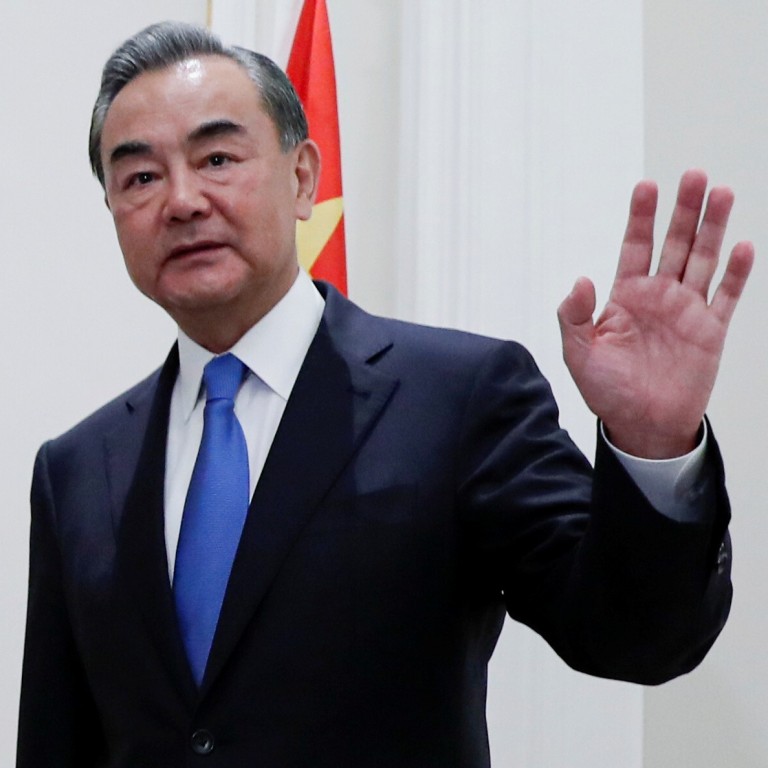
Human rights cast shadow over China Foreign Minister Wang Yi’s Netherlands visit
- A group of Dutch politicians has signalled intention to invite the Chinese diplomat to talk about Hong Kong, Xinjiang
- Parliamentary sources suggest the move has majority support although the invitation could be declined
Wang is likely to lobby the Dutch government to renew an export licence for the sale of critical chip making technology to China, amid US pressure against the move on the grounds of national security.
A US$150 million order placed with ASML – global leader in its field – has been on hold after lobbying by US Secretary of State Mike Pompeo and the sharing by White House officials of a classified intelligence report with Dutch Prime Minister Mark Rutte.
Chinese ambassador warns Netherlands against restricting ASML supplies
While Wang could decline the invitation, the politically embarrassing move by the lawmakers offers a glimpse into what may lie ahead at a more critical time in his tour – in Norway, France and Germany, where human rights are most likely to be raised in discussions.
Theo van Toor, registrar of the Tweede Kamer – the Dutch House of Representatives – and clerk of the committee, gave notice of the proposed invitation, put forward by Christian Democratic Appeal politician Martijn van Helvert, in a letter to members.
Sources say the motion was most likely to be endorsed by a majority of the committee – a sign of the growing frustration with Chinese diplomacy, even in a normally non-confrontational parliament like the one in The Hague.
‘Damage control’ at heart of Chinese foreign minister’s mission to Europe
A Dutch MP, speaking on condition of anonymity, said Foreign Minister Stef Blok “now already knows there is a majority”.
Van Helvert is a co-chair of the hawkish Inter-Parliamentary Alliance on China (IPAC), along with US Senator Marco Rubio and Iain Duncan Smith, a British member of parliament.
The Dutch foreign ministry did not reply to a request for comment and the Chinese embassy in the Netherlands could not be reached.

Wang, on the other hand, was on the defensive as he tried to justify the need for the law to curb what Beijing called seditious activities. He made no mention of the EU’s arms control ban on the city’s police, or the plan to extend visa rights to Hong Kong students.
German minister urges EU to ‘lock horns’ with China when necessary
The Netherlands, in contrast, was the first EU country to issue a China strategy paper last year. “China influences all of our lives,” Blok said when he announced the policy last May.
“China aspires to modify the narrative of the international order by giving it ‘Chinese characteristics’. This is not in the Netherlands’ interests.”
Blok called the belt and road plan “a far-reaching form of economic diplomacy”, adding: “There’s nothing wrong with that. But it mustn’t saddle countries with unsustainable debt.”

